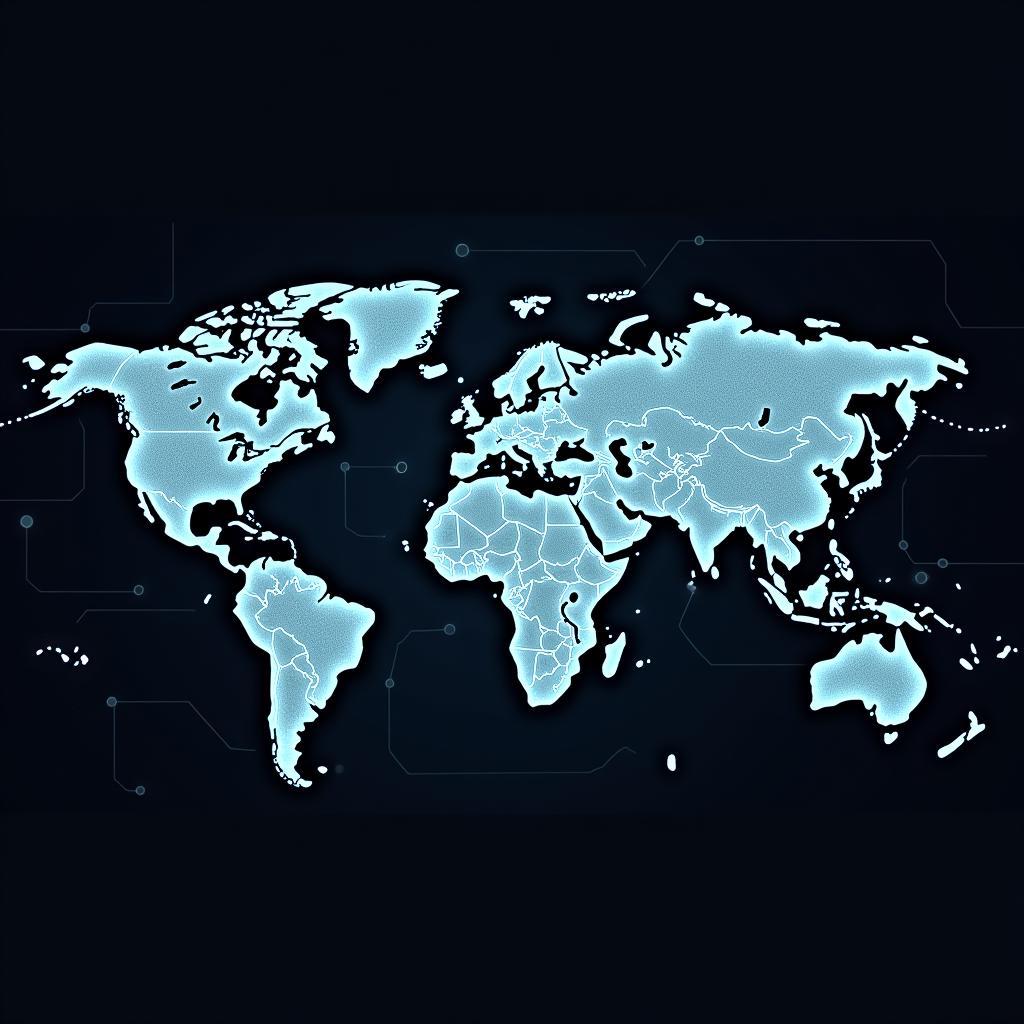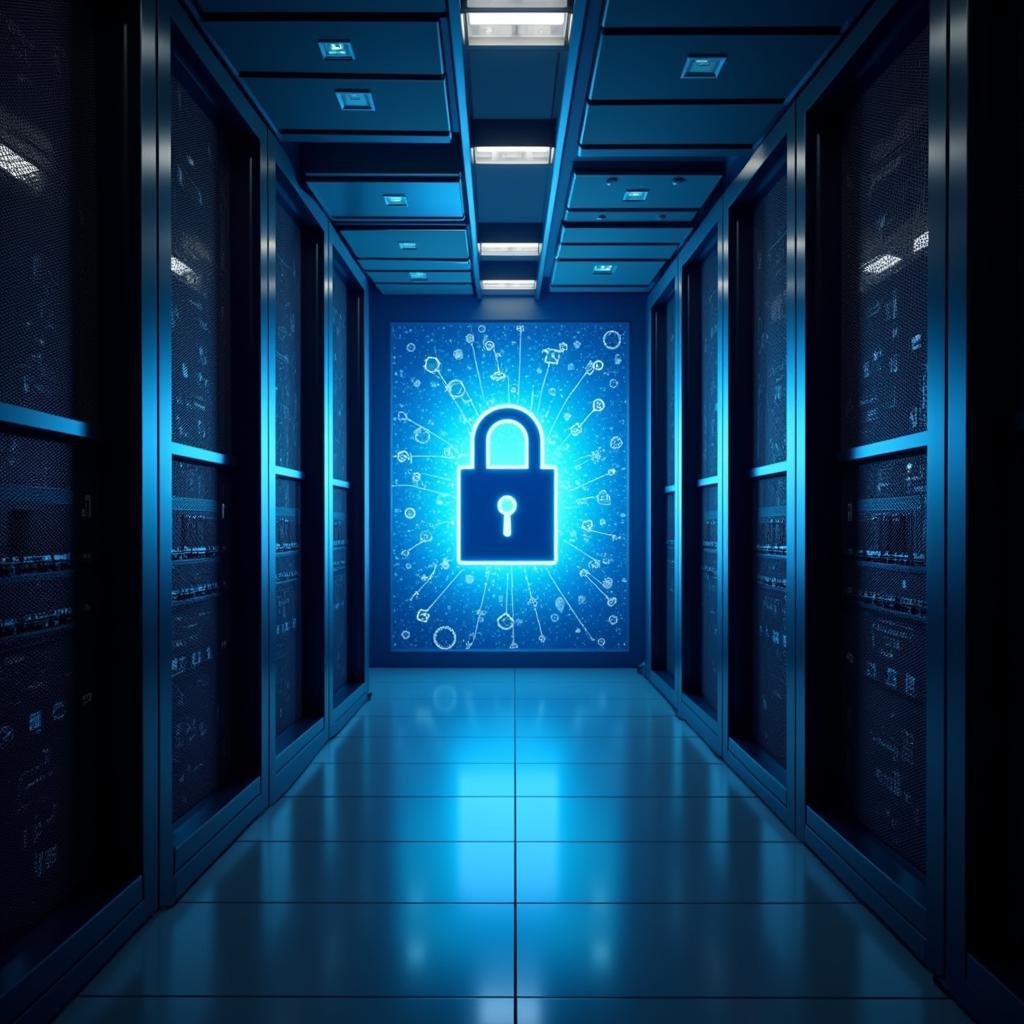Big Data In Society is transforming the world around us, impacting everything from healthcare and education to governance and security. This rapid evolution presents both immense opportunities and significant challenges, particularly when viewed through the lens of peacebuilding and fostering understanding between different cultures. How can we harness the power of big data to promote empathy, encourage dialogue, and ultimately, build a more peaceful future?
The sheer volume and variety of data generated every day offer unprecedented insights into human behavior, societal trends, and global issues. By analyzing this data responsibly, we can identify potential conflict triggers, understand the root causes of violence, and develop targeted interventions to prevent future outbreaks. Furthermore, big data can facilitate cross-cultural communication and bridge divides by connecting people from diverse backgrounds and fostering mutual understanding. For example, initiatives that leverage social media data to highlight shared values and common experiences can help to break down stereotypes and prejudices, paving the way for constructive dialogue and collaboration.
Leveraging Big Data for Conflict Resolution
One of the most promising applications of big data in peacebuilding is its potential to enhance conflict resolution efforts. By analyzing patterns of communication and interaction within and between communities, we can gain a deeper understanding of the dynamics driving conflict. This data-driven approach allows mediators and peacebuilders to identify key stakeholders, understand their motivations and grievances, and tailor their strategies accordingly.
Furthermore, big data can be used to monitor and predict the spread of misinformation and hate speech, which often play a significant role in exacerbating tensions and fueling conflict. By identifying and countering these harmful narratives, we can create a more conducive environment for peaceful dialogue and reconciliation.
You can read more about the interconnectedness of data and society on our big data and society page.
How Can Data Bridge Cultural Divides?
Big data offers unique opportunities to bridge cultural divides by promoting intercultural understanding and empathy. By analyzing data from social media, online forums, and other digital platforms, we can identify areas of common ground and shared interests between different cultural groups. This information can then be used to design targeted interventions that promote cross-cultural communication and collaboration.
 Bridging Cultural Divides with Data Analysis
Bridging Cultural Divides with Data Analysis
For example, imagine a platform that uses big data to connect people from different countries who share a passion for environmental conservation. By facilitating communication and collaboration between these individuals, the platform could foster a sense of shared purpose and global citizenship, transcending cultural boundaries and promoting peace.
Addressing Ethical Concerns in Big Data for Peace
While the potential benefits of big data for peace are undeniable, it is crucial to address the ethical concerns surrounding its use. Data privacy, algorithmic bias, and the potential for surveillance and manipulation are all critical issues that must be carefully considered. To ensure that big data is used responsibly and ethically in the pursuit of peace, we must establish clear guidelines and regulations that protect individual rights and promote transparency and accountability.
Ensuring Data Privacy and Security
Protecting individual privacy and data security is paramount in any application of big data, particularly in sensitive contexts such as peacebuilding and conflict resolution. Robust data protection measures, including anonymization and encryption, are essential to safeguard sensitive information and prevent misuse.
 Data Privacy and Security Measures in Peacebuilding Initiatives
Data Privacy and Security Measures in Peacebuilding Initiatives
The Peninsula Humane Society in San Mateo offers valuable insights into responsible data management practices.
Mitigating Algorithmic Bias
Algorithmic bias can lead to discriminatory outcomes and undermine the very principles of fairness and equality that underpin peacebuilding efforts. It is essential to develop and implement strategies to mitigate bias in algorithms used for data analysis and decision-making in peacebuilding contexts.
Big data is undoubtedly a powerful tool that can be harnessed to promote peace and understanding in our increasingly interconnected world. By addressing the ethical challenges and working together to ensure responsible and equitable use, we can unlock the transformative potential of big data to build a more peaceful and just future. Learn more about community services at the Kansas Humane Society Services page.
 Mitigating Algorithmic Bias in Data Analysis for Peacebuilding
Mitigating Algorithmic Bias in Data Analysis for Peacebuilding
Conclusion
Big data in society offers immense potential for promoting peace and understanding between cultures. By responsibly leveraging its power, we can address the root causes of conflict, bridge cultural divides, and build a more peaceful world. However, it is crucial to navigate the ethical challenges carefully and prioritize data privacy, transparency, and accountability. Only then can we truly harness the transformative power of big data for the benefit of all. Explore further resources on our Humane Society in Mason City Iowa page and the Humane Society Chula Vista page.
FAQ
- What is big data’s role in peacebuilding?
- How can data analysis prevent conflicts?
- Can big data bridge cultural differences?
- What are the ethical concerns of using big data for peace?
- How can we ensure responsible data use in peacebuilding?
- What are examples of successful big data applications in peace initiatives?
- How can individuals contribute to ethical big data practices for peace?
Need further assistance? Contact us at Phone Number: 02043854663, Email: [email protected] or visit our office at Zone 34, Bac Giang, 260000, Vietnam. Our customer service team is available 24/7.